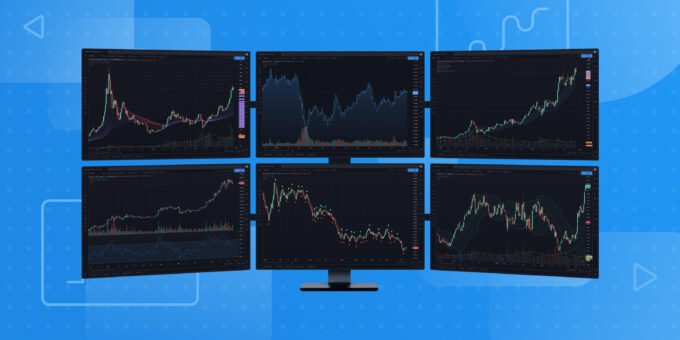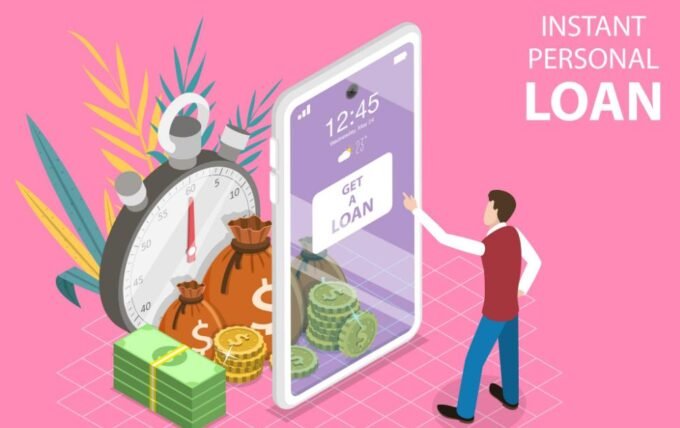
Jeff Bezos (if you don’t know) is the CEO and founder of the behemoth Amazon. While many of us were kicking up our Airwalks with an episode of Friends playing in the background, Bezos was architecting a grand plan that would change the way people shopped forever. He called it the “Everything Store,” a place where people could purchase virtually anything using the as-yet-untapped power of the Internet. Twenty years later, the Everything Store makes billions worldwide and goes by the name Amazon.com.
Jeff Bezos and add to your business
Below are some lessons I learned from him and lessons you can apply to your business.
-
Your Customer is Key
If there is one thing you should know about Bezos, it is that his customers are key.
One of the things that have helped Amazon become so successful is Jeff Bezos’s belief in always serving the customer first. He knew that customers wanted low prices, faster shipping, so he prioritized the company (which prevented Amazon from turning a profit). He knew that if you did everything to please the customer, he would get customers hooked (like myself) and then build long-term value.
Bezos’s main aim was never to become a billionaire but to produce a service that made life easier for others. Whenever Amazon received a customer complaint, they would do anything possible to improve the experience. This obsession with what the customer wanted was crucial to why people liked them and became loyal.
Over the years, Amazon constantly adds features that aim to make their customers happy, which, in turn, bolsters the company’s sales.
Many businesses and individuals make the mistake of thinking about short-term profits and gains. They screw over their customers to make a few extra nickels. Yet, by always trying to do what is best for your customer, you will end up making dollars in the future. Make the core of your business customer satisfaction. Hunt relentlessly for what makes your customers smile and innovate based on their needs.
2. Every business starts small
‘Big things start small.’
Bezos started Amazon by selling used books out of his garage. After receiving an order, Jeff would buy it in a thrift store and ship it to the customer. It was a cheap, low-risk model to find out if customers wanted their service.
At this point, Bezos was obsessed with the growth of the internet. He studied the 20 largest mail-order companies and predicted that there would be a tsunami of change in how people would buy things.
Jeff started with books, but his big goal was to become a store that would sell everything. Books were just a convenient product to test the model on. By combining the internet’s ideas and making the physical store digital, Amazon revolutionized how people bought goods and services. We no longer had to walk out our front door.
-
Think Long Term
If you can know only one thing about Bezos, it should be that he thinks long-term. Bezos started Amazon with the long game in mind–a play that meant accepting short-term losses that not everyone understood.
Consider the e-book. When e-books first entered the market, most publishers sold them at prices commensurate to their print editions. Bezos, however, projected that their long-term price would be around 10 dollars and started selling them for 9.99. At first, this decision generated losses of about 5 dollars per e-book, but when the price eventually dropped, Amazon had already become the go-to for e-books. With this surprising strategy, he’d also laid the foundation for one of the company’s greatest successes.
Obviously, thinking long-term requires a tremendous amount of patience. This is especially true when you’re the CEO who needs to also focus on day-to-day operations. And it requires you to be misunderstood for long periods of time. It’s part of building something new.
Don’t be afraid to make decisions that might be unpopular at the moment but will reap future rewards.
4. Risk It
Your dreams may never come true if you do not take a risk on them. The ideas you need for life change are within reach if you would only take a chance on them.
But there’s common confusion about taking risks, too: We do not simply jump into something without giving it any thought or pre-assessment. This way of thinking usually leads to failure.
Good entrepreneurs don’t like risk; they seek to reduce risk…Starting a company is already risky, and then you systematically eliminate risk step by step in those early days….you kind of need to systematically identify risk, and then as the company gets bigger and more robust, you can start taking risks again, but in those early days, a lot of it is about ‘okay I have a good idea, how do we reduce risk?’”
Bezos, for one, gave it a lot of thought and did his homework. Though he’s well aware that there is a slight chance, it might fail.
In 1994, Jeff Bezos had to decide whether to quit his job as an NYC hedge fund manager that pays over 6 figures a year to create an online bookstore that could be huge or fall flat on his face.
He then created a Regret Minimization Framework framework, which helped him realize he didn’t want to regret later for not taking a chance on his vision. So he decided to have a go…
Today, Amazon operates on the premise that the risk is worth the reward. This approach has led to flops such as Amazon Auctions, a division that couldn’t compete with eBay’s hold on the market, but it’s also spawned Amazon’s wildly successful 1-Click Purchase. To support a culture of initiative and enterprise, Bezos created a “Just Do It” award, conferred to both employees who tried and succeeded and also to those who tried and failed. The core message is that taking a risk is preferable to being too fearful of moving.
Risks are worth taking. Half the time, you’ll fail, but when that initiative results in a win, it just might be big and bold.
5. Be Stubborn yet Flexible
“The thing about inventing is you have to be both stubborn and flexible, more or less simultaneously.”
Bezos acknowledges that Great entrepreneurs need these two contradictory traits to succeed. To most people, it seems impossible to be both stubborn and flexible simultaneously, but that’s exactly what Amazon has become. Bezos explains:
“If you’re not stubborn, you’ll give up on experiments too soon. And if you’re not flexible, you’ll pound your head against the wall, and you won’t see a different solution to a problem you’re trying to solve
Like Yin and Yang, the Chinese philosophy of Taoism, stubbornness, and flexibility are opposing forces that can be extremely powerful if they can co-exist. Anything in life is also just about the same. Matter cannot exist without anti-matter and so on.
-
It is easier to invent the future than to predict it
I believe it is an Alan Kay quote that says, “It is easier to invent the future than to predict it.” Jeff Bezos applied the same concept with Amazon. When he started Amazon, nobody sold books online— and it was considered strange to buy things online with your credit card.
Yet, instead of trying to predict what the future was going to be like — he invented it. He innovated with Amazon with first with books, then made it the store for everything. With Amazon Prime, Jeff Bezos did the unthinkable — made almost all the products available for the “free” 2-day shipping (with an Amazon Prime subscription). He innovated with the Kindle e-reader and the Kindle publishing platform (that made anyone an author). Furthermore, they have pushed to become a monopoly by pursuing risky ventures— making smartphones, tablets, voice-controlled assistants, TV/Music/Movie streaming, 1-hour delivery, groceries, fashion, and tons of other things I don’t even know about.
Don’t wait for the future to happen. If you find anything you’re frustrated about in life, be the change that you wish to see in the world (Gandhi).
7. Prioritize what’s important
‘I always make sure to get eight hours of sleep every night. I don’t want to risk making poor executive decisions because I am ‘tired or grouchy.’’
The world’s richest man sleeps eight hours a night and only sets his first meeting at 10 am. This may sound lazy, but his priority is to eat breakfast with his kids and family and be alert. In the early hours of the day, he likes to putter around the house while drinking his coffee and staying relaxed. This type of short-term relaxation can actually be long-term productive. By taking some time in the morning to thrive, you will be more ready to perform when it matters.
At 10 am, it’s all business, however. Bezos likes to make all the most important decisions before lunch, as the first half of the day is when we have the greatest capacity to make good decisions. By having a clear mind when the most critical decisions are made, you maximize your daily success chances.
8. Let the Data Decide
It might surprise you that Amazon.com started as a book shop. The initial product selection was no happy accident on Bezos’ part, but rather the result of a long look at hard facts. Books can be shipped without breaking, they’re rarely returned, and they’ll never expire (even if the knowledge therein grows stale). In short, books are the ideal product for e-commerce.
Every aspect of commerce and customer behavior is eminently quantifiable, so Bezos demands that all decisions be based on that intel. Meetings are not about customer anecdotes but rather Excel sheets filled with relevant metrics.
Before making a call, consult the data. Humans can get it wrong, but numbers never lie.
9. Stay Hungry
Never ceasing to learn, evolve, and innovate might be the ultimate ingredient for success. Amazon began with books, but no sooner had they gained a foothold in that market than conquering music, movies, electronics, and toys. Later came the Kindle, and with it, they won their niche. Even now, there are Amazon services completely under the radar of most consumers. Did you know that Amazon Web Services provides cloud computing services to big businesses, the US government, and even NASA?
Becoming a viable player in such various arenas never came from Bezos sitting back, satisfied with the goods already reaped. On the contrary, he believes that there are no products and services Amazon couldn’t sell. Soon, the company will have its own delivery fleet, become a publisher and media company, build smartphones, and perhaps even offer 3D printing services. For Bezos, the future is rife with possibility, opportunity, and inventiveness–and he’s hungry for all that it brings.
The road to success is paved with dissatisfaction. Never accept the status quo or say, “I’ve done enough.” Instead, keep searching for potential and inciting growth.
Jeff Bezos’ unique way of thinking long-term and taking smart risks has made Amazon into the company it is today, one that writes its own rules and evolves every minute, not to mention one that rakes in annual revenue of 75 billion dollars. Take it from Amazon’s founding striver: focus on customers, stay hungry, be frugal, and maybe, take a peep into the garage. If you look past the lawnmowers and buckets of paint, it just might be teeming with potential.
-
Get Started Now to Avoid Regret Later
What’s the worst thing you can live with?
Regrets, guilt, sorrow?
When Bezos was thinking about building Amazon, he had to decide whether to start the company or keep his good job on Wall Street. He created a framework to use for deciding what he calls a Regret Minimization Framework. It helped him realize he didn’t want to do it and regret it later. This fear of regret is one of the key reasons he decided to go ahead and start Amazon.
Conclusion
Regardless of your personal beliefs about Amazon, I feel many of Jeff Bezos’ personal beliefs and ethics can help you in your life and business.
Be bold. Be audacious. Take risks. Don’t wait for the future to happen — create the future yourself.
Seek to improve value for others. Seek long-term growth. Be patient, and have no regrets in life.















Leave a comment